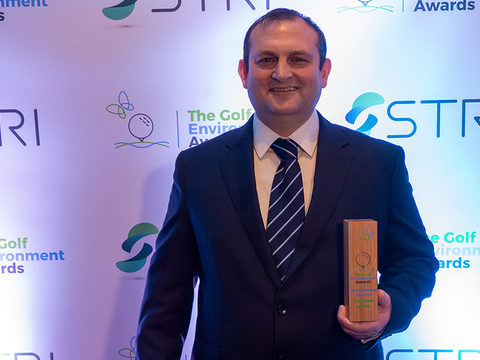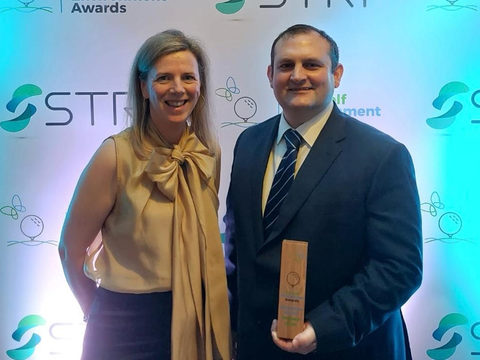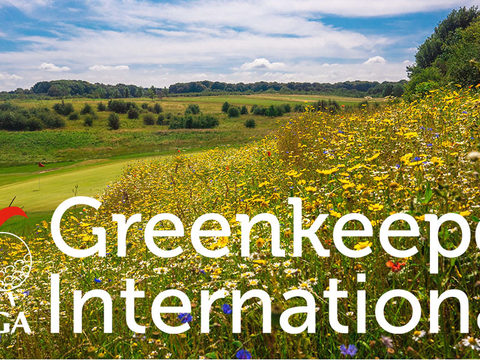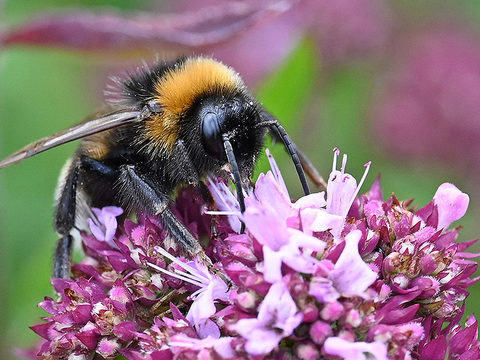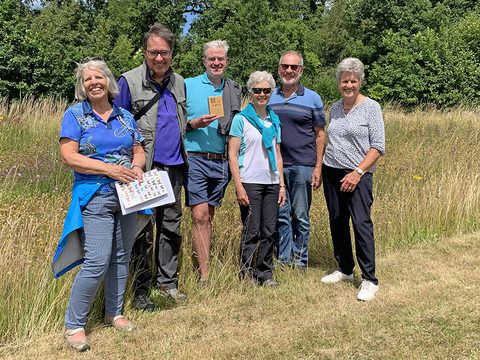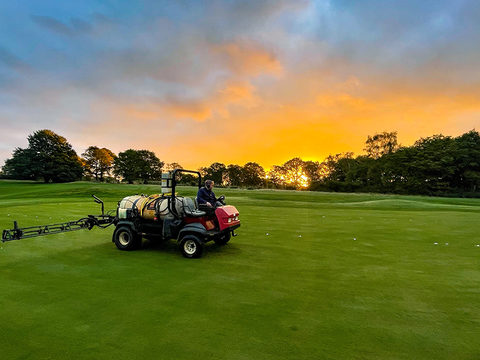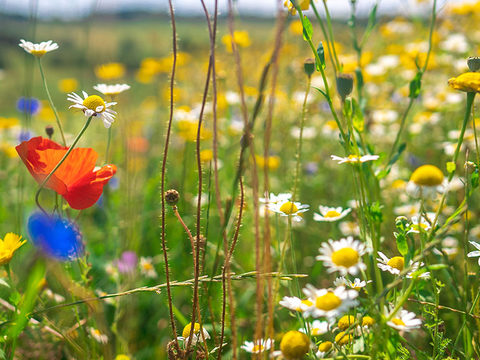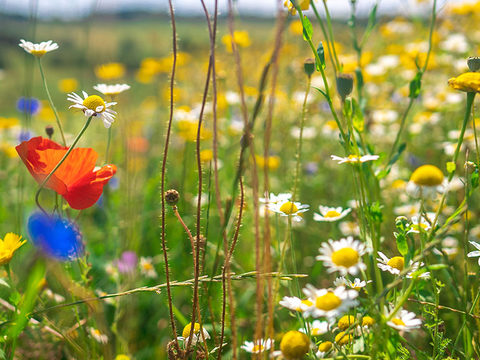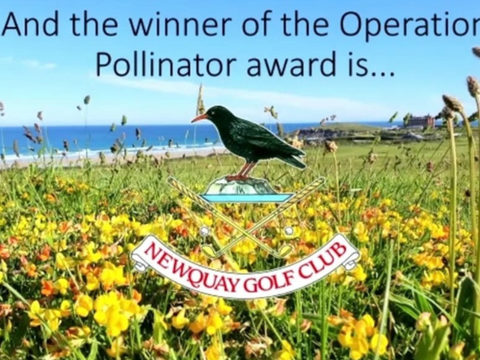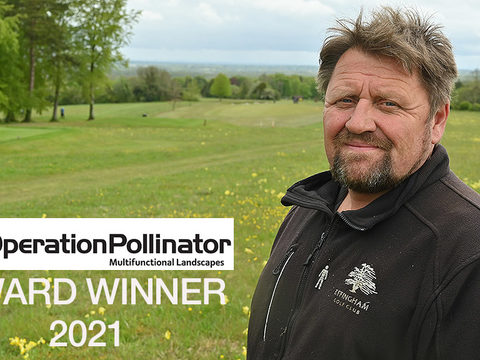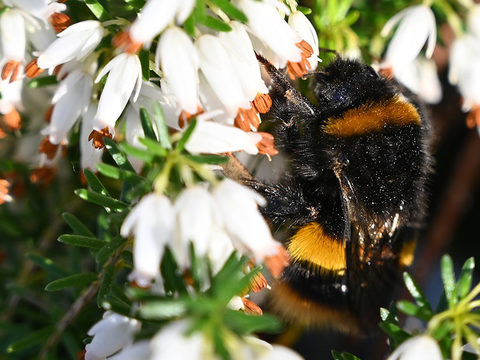NORTH FORELAND CREATES A BUZZ FOR GOLFERS
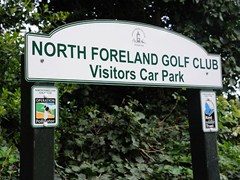
Operation Pollinator is creating a real buzz around North Foreland Golf Club. Members and visitors are instantly captivated in what's going, but it's also stimulating added interest for the greenkeeping team, reports Course Manager, Dan McGrath, MG.
You certainly can't miss the fact that the club, which sits on the far eastern peninsular of Kent and attracts some 45,000 rounds of golf a year, is involved with the project. The car park entrance includes signage with the logo, along with areas of the course where new habitat is being created. Even when you finish your round, there are table mats in the clubhouse with the logo.

"It's a constant gentle reminder that, as a club, we are involved in something exciting and generating interest," says Dan (above). He believes that it is genuinely creating discussion points and interest among the members, with active engagement in what the greenkeeping team is doing.
But importantly, he sees that it has also invigorated interest among the team. "We have a young team of eight working on the course, and it's challenging them to ask questions and get involved - which can only be a good thing. We are keen to promote and motivate, so they'll go on to manage other courses, and take the positive aspects of environmental management with them."
Having been inspired at one of the Operation Pollinator Roadshows last spring, Dan and the team identified some suitable areas of out of play rough that could be stripped back and oversown with wildflower seed mixture. Now they have been busy creating nesting habitats for bees, with home-made 'insect hotels' and strategically placed log piles.
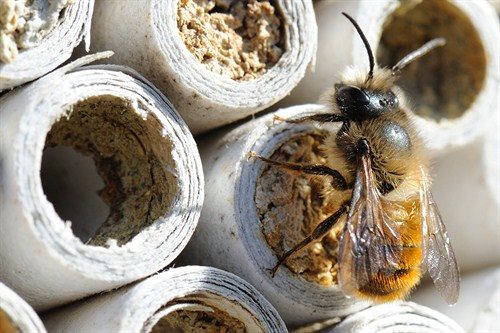
He reports that using a heavy duty scarifier they were able to create the necessary seedbed, which in the process ripped out creeping ivy that was invading the rough and threatening to spread into in-play areas. It was undertaken in September, when there was a break in the course management workload and didn't interrupt with day-to-day operations.
Involvement with the project has also promoted good stewardship within the greenkeeping team, he reports. They are more aware of the need for environmental protection, from taking care with fertiliser or spray application, to machinery operation and day-to-day observations around the course.
Dan has been keen to get the members on board with the project and its objectives from the outset. He recalls there was a surge of interest generated by the BBC programme Bees, Butterflies & Blooms, which included the experiences of Operation Pollinator champion, Duncan Farrington. "Having seen what we were already doing, they were keen to do more. It's given us a differentiator over other clubs in the area, which helps to forge closer links with members and attract visitors."
He advises keeping communications with members as simple as possible, but maintaining a constant presence and awareness. A series of 'before; during and after pictures' and caption is better than a long written report, he says. And email is definitely more effective than a sheet on the notice board.
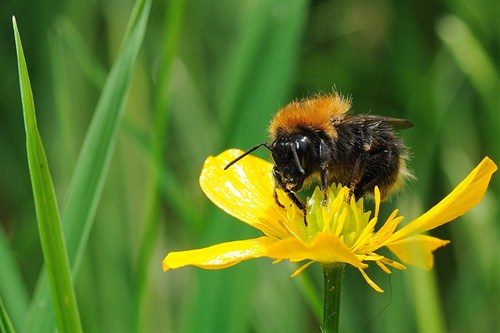
Social networking, such as Twitter or Facebook, may be a step too far for the members of North Foreland, but Dan certainly wouldn't rule it out in the future. And for some courses where it's already used as a communication tool, would be an ideal route to keep people informed of developments.
The club has sent out a press release to local newspaper to highlight what they are doing, with plans to send further updates and news of successes that will raise the profile of the course. It's also a positive message that golf courses can be good for the environment and an ecological resource, he adds. It's also helped to build links with the wider community, along with their work with the Kent Wildlife Trust to promote as wide a spectrum of biodiversity as possible.
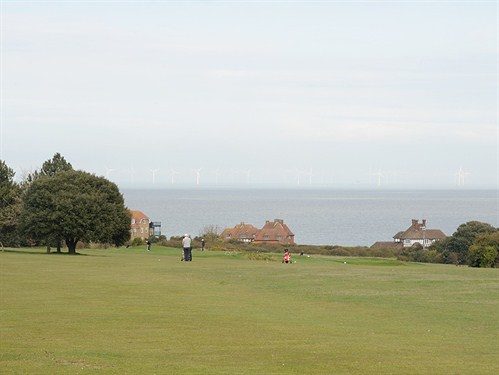
"We are aware that it may take a few goes to get it right and establish the full effect," says Dan, "but it's been a relatively low-cost investment, so we are prepared to keep going." From the experience at North Foreland, he believes, it should be possible for all golf courses to find suitable areas for Operation Pollinator habitat creation and gain similar benefits for the club and the industry as a whole.

